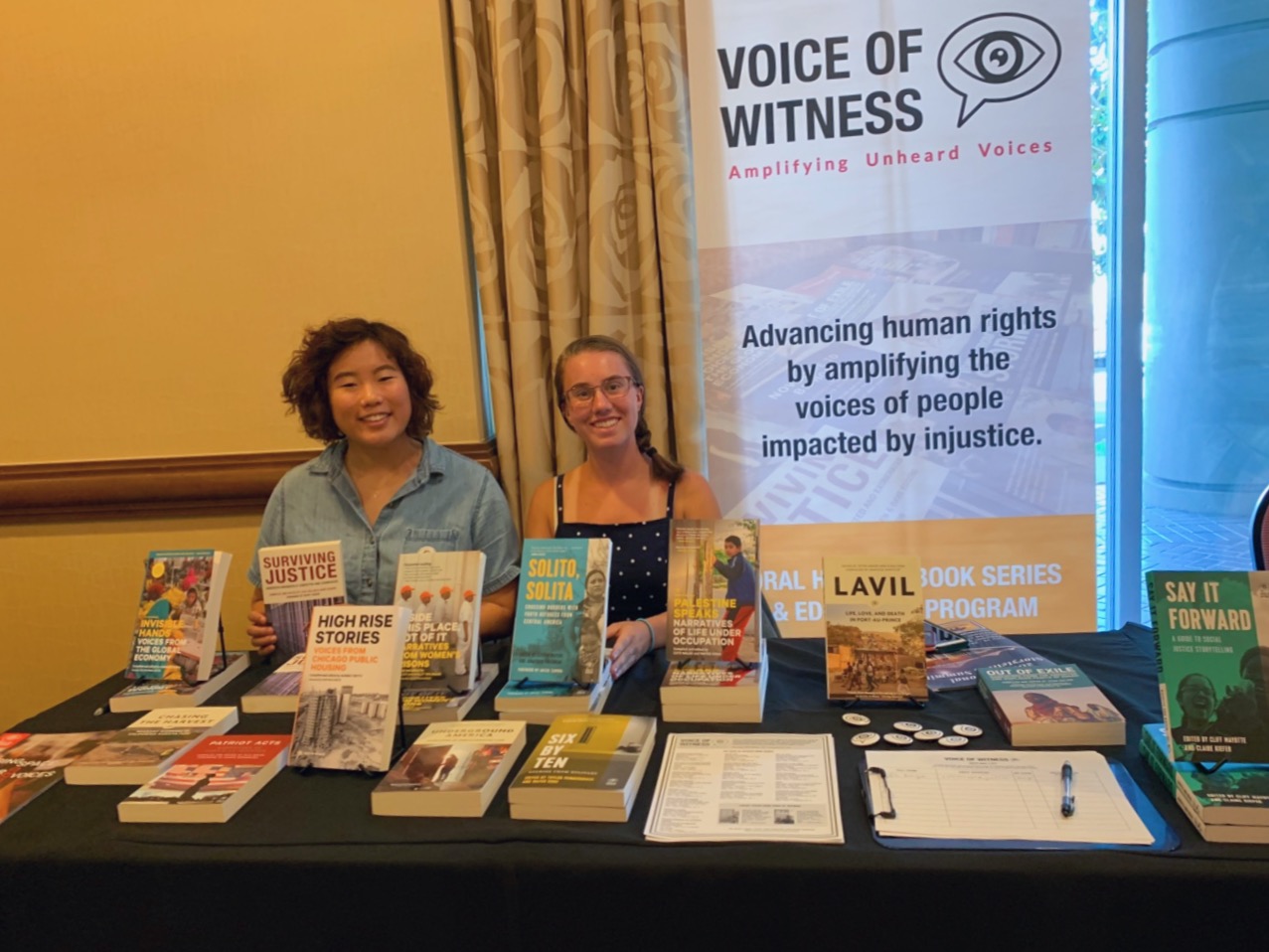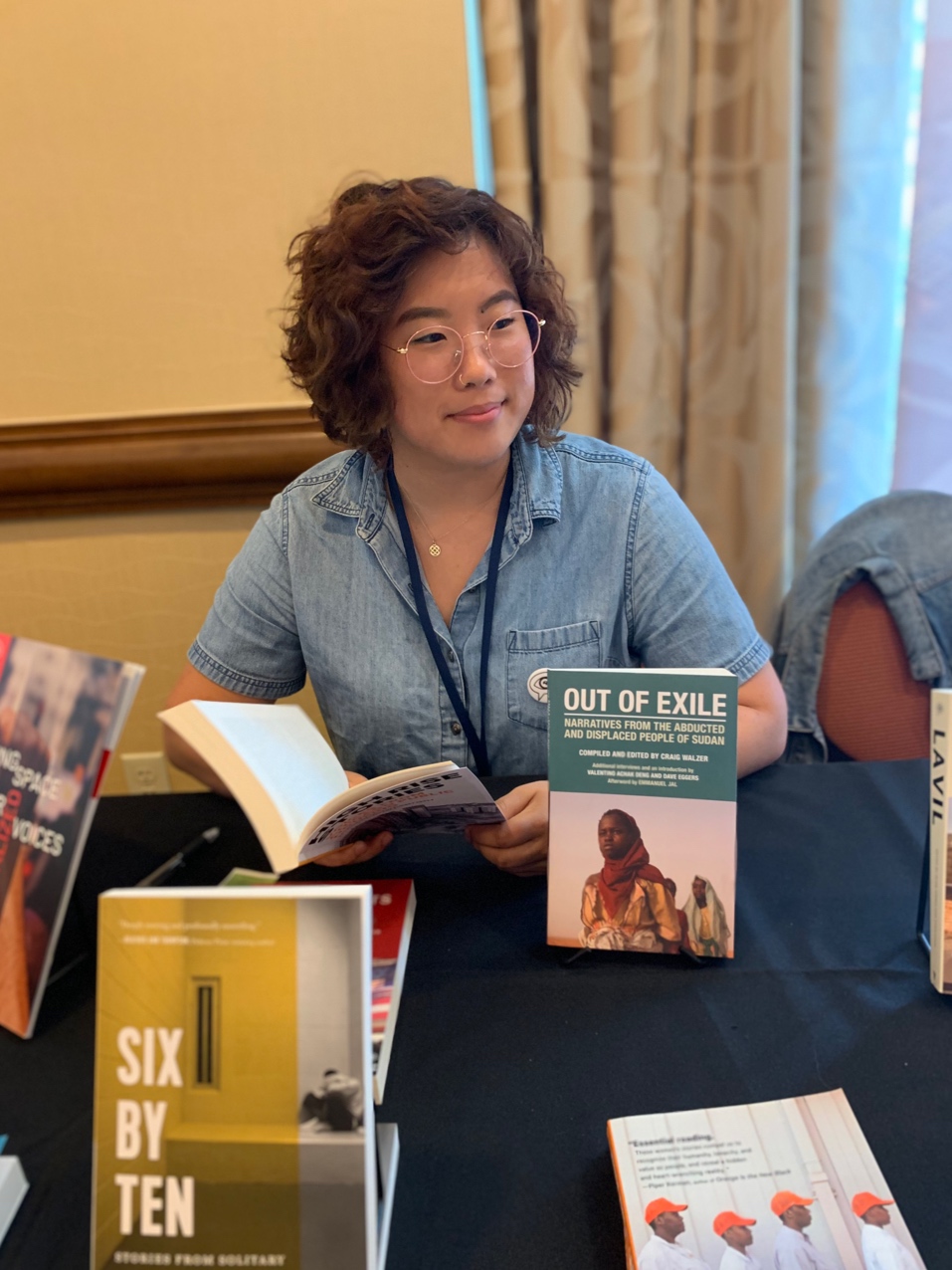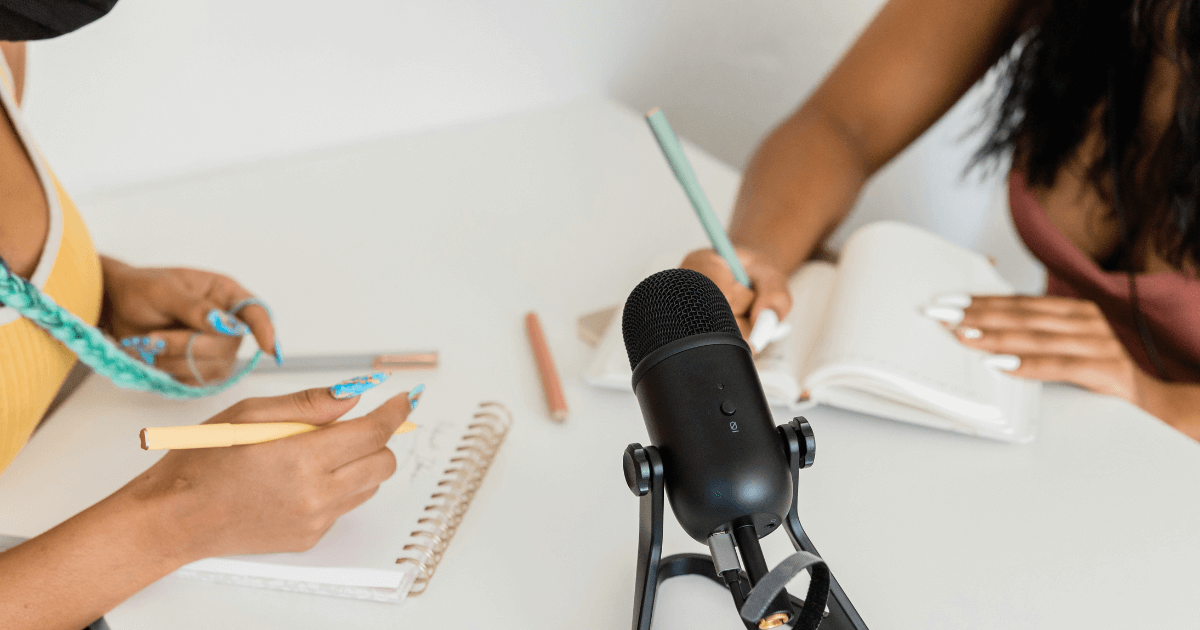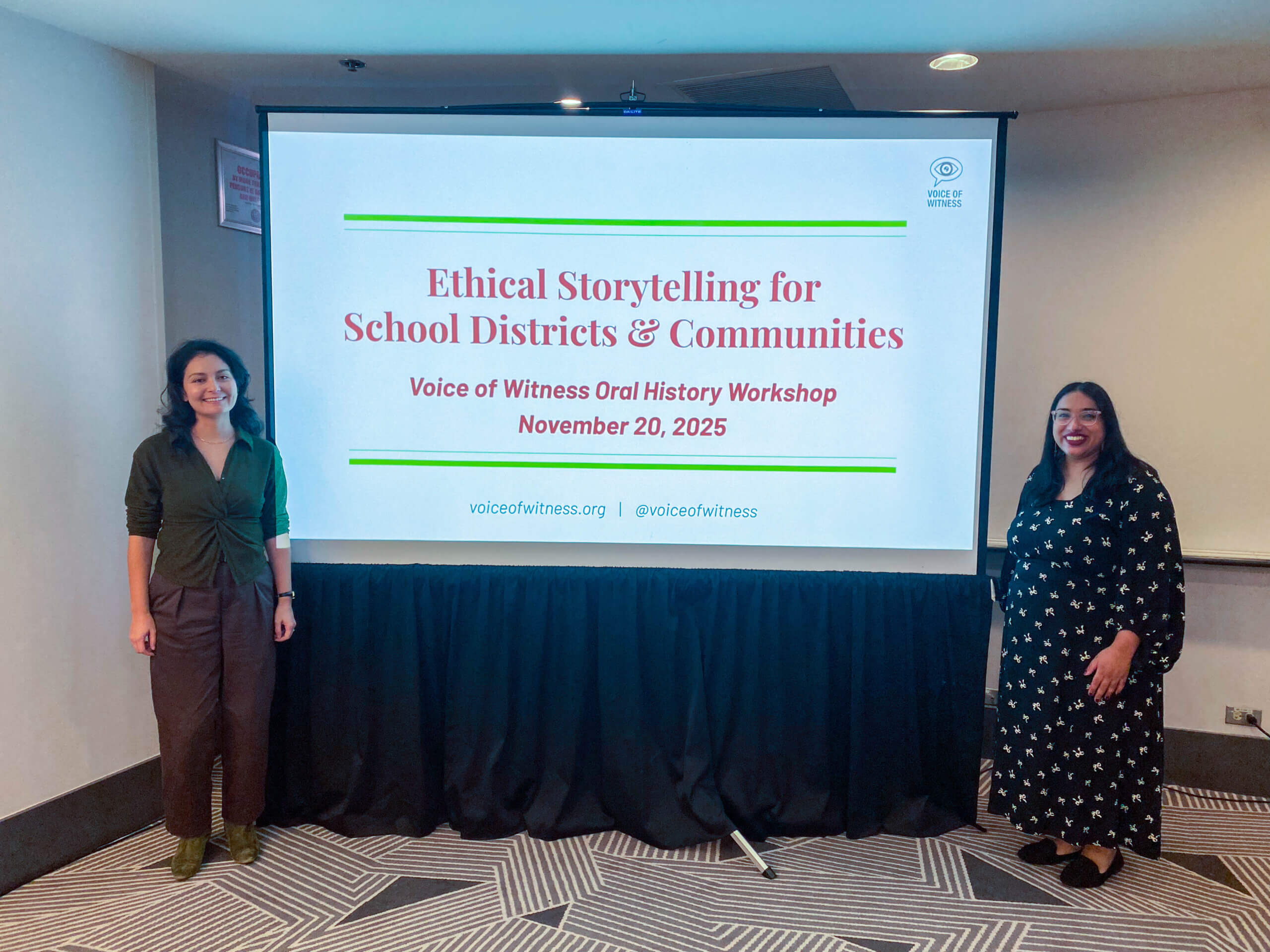This summer, we have been fortunate to have four wonderful interns join us to support our work. In this post, two of our interns Molly Hawkins and Ari Kim from Haverford College reflect on their summer at VOW.  Molly HawkinsIn mid-July, Ari, Margaret, and I were able to attend an oral history workshop taught by Cliff at 826 Valencia. Before the group dispersed to begin interviewing one another, Cliff asked the group to discuss what it means to create a safe space and a brave space, the latter being a more authentic way to describe the best that any space for conversation can be. Since then, I have been thinking about all the ways in which Voice of Witness has modeled and served as a brave space for me to be a part of this summer.
Molly HawkinsIn mid-July, Ari, Margaret, and I were able to attend an oral history workshop taught by Cliff at 826 Valencia. Before the group dispersed to begin interviewing one another, Cliff asked the group to discuss what it means to create a safe space and a brave space, the latter being a more authentic way to describe the best that any space for conversation can be. Since then, I have been thinking about all the ways in which Voice of Witness has modeled and served as a brave space for me to be a part of this summer.
When I think of all of the people who are a part of Voice of Witness that I have been lucky enough to work with, what comes to mind is bravery, and I have been trying to put my finger on why. I think it has to do with their ability to work constantly, without losing spirit, in the face of suffering that is often suffocating and always visible, whether that visibility is in the form of national news, or in the inequality within the Bay Area itself. I think it is extremely brave, as everyone at Voice of Witness does, to devote a great deal of your time to doing your honest part to provide resources and some form of hope to those who have gone through injustice, despite knowing that injustice will continue to be a reality of the world far past your own time. To do so is to place incredible trust in humanity’s ability to evolve and become better, as well as in those who will come after us to continue what we have worked to begin. This is evident in the productivity, open-mindedness, and optimism that I have witnessed constantly from everyone at Voice of Witness. Even while working as part of an organization that comes into constant contact with injustice, the people at Voice of Witness maintain a bottomless amount of empathy, and are not desensitized to the stories that they work with and inevitably become deeply invested in. This is so apparent not only in the effort that they put in each day, but also in their mannerisms and the kinds of discussions that I have overheard and been a part of in the office.
Yet at the same time, there is also a space for joy here. There seems to be an unspoken bond between the staff members based on shared values. I feel that the people here at Voice of Witness truly believe in the ability of their organization’s work to bring an avenue for truth, empathy, and compassion into the world. From reading Voice of Witness material myself, to watching staff members interact with narrators, to accompanying staff to oral history workshops and events, it’s clear that Voice of Witness is succeeding in its courageous mission.
I felt so welcomed the moment I began working here, feeling an immediate connection to, and sense of trust from everyone. Right away, I could tell that Ari, Margaret, and I were viewed as capable and well-intentioned people who would be able to add something to the organization during our stay here, which meant a lot to me. I was given an opportunity to work on so many different tasks, including transcribing and editing narratives for upcoming book projects, a process that has only strengthened my belief in the power of opening up to others, and the power of writing. For this opportunity, and for the chance to work with such funny, selfless, kind people, I am very grateful.
Ari Kim
I’m at a loss for words to describe my summer with Voice of Witness–in a good way, I promise! It’s difficult to summarize exactly how VOW has impacted me, because the focus of my summer wasn’t me. VOW’s mission and staff have taught me how to reorient my energies toward people and empathy, and I’m endlessly grateful for this.
 Too often, I get caught up in the technicalities of ethics that I forget why I’m doing something in the first place. As a history major, I strive to uplift marginalized voices in all dimensions and forms of academia. It pains me that oral histories and personal stories aren’t considered valuable primary sources. I constantly mull over if I’m doing a person justice if I’m using a part of their narrative in a paper. I worry about these issues to the point that the people’s histories go right through my head. VOW’s method of engaging with narrators and respecting the integrity of their lives and stories opened my ears and eyes again to the human nature of oral history.
Too often, I get caught up in the technicalities of ethics that I forget why I’m doing something in the first place. As a history major, I strive to uplift marginalized voices in all dimensions and forms of academia. It pains me that oral histories and personal stories aren’t considered valuable primary sources. I constantly mull over if I’m doing a person justice if I’m using a part of their narrative in a paper. I worry about these issues to the point that the people’s histories go right through my head. VOW’s method of engaging with narrators and respecting the integrity of their lives and stories opened my ears and eyes again to the human nature of oral history.
Every interview I transcribed for VOW’s upcoming books, How We Go Home and hear/say, reminded me to stop and just listen to the stories. I had the privilege of literally hearing the narrators’ voices and entering a sort of liminal space where I was sitting alone with the narrators, face-to-face, taking in the totality of their lives in merely 30 minutes. These moments are just as, and if not more, intimate as friendships I’ve held for years. Each part of the editing process was similarly an intimate affair. I was tasked with transforming the interview transcripts into narratives–I was responsible for creating the most faithful reproductions of people’s lives on paper. As cheesy as it sounds, my work at VOW connected me deeply to the narrators. I carry a piece of their lives with me, and more than ever I’m galvanized to take action.
That’s the thing about oral history–it’s powerful, it’s moving, it’s a persistent reminder that we need to sit and listen to the explicitness of what’s happening around us. The stories we hear about and read in the news are meticulously crafted, spliced bits and pieces of narratives that suit the average consumer’s palate with just enough shock value so they can carry on with their lives. We know injustices occur daily all over the world, but we easily remove ourselves from the pages or screens. We need oral history to tear down the walls that bar us from meeting the people behind the stories. Otherwise, we will only remain complacent in feeling a brief sadness, then doing nothing. We donate a few dollars to charity, then fail to act against the societal and structural forces that continue to oppress the people we wish to support. The people’s voices matter. To ignore them, drown them out, or erase them is to feed the problems that affect their communities. We have an obligation to amplify their voices after tuning them out for so long.
VOW has truly changed me for the better. The staff and my fellow intern friends are all genuinely compassionate and dedicated to serving others without even thinking about it. I’ve been so lucky to be surrounded by people who really do inspire me to actively listen and rise up. We all have several minutes in our lives to pause and listen, so do it.




